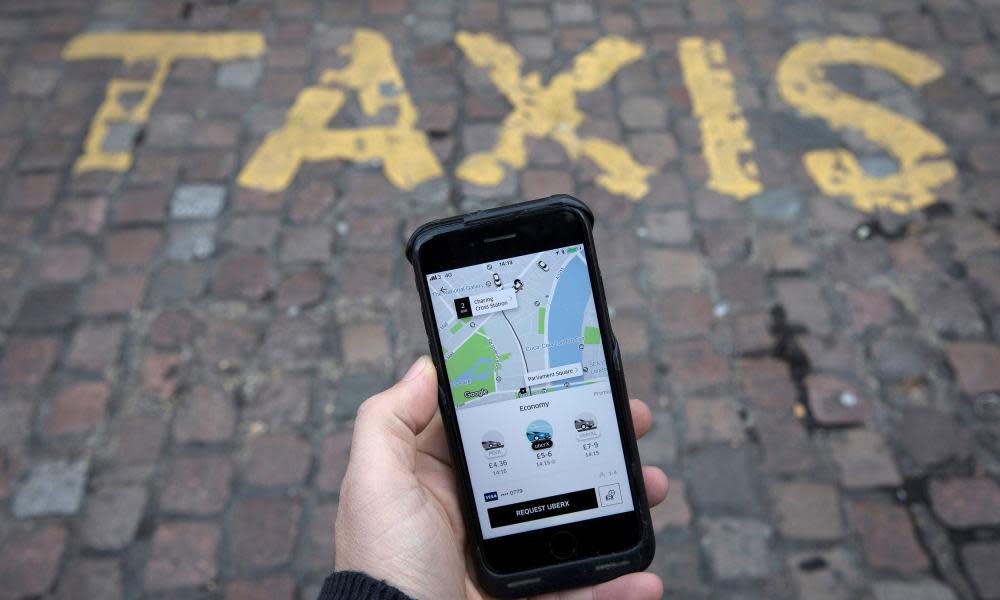Uber’s ‘disruption’ is far from benign - but it’s not too big to ban | Abi Wilkinson

Uber is one of those companies that seems to take pride in upsetting the status quo. Its cheerleaders claim the minicab app is a shining example of “disruptive innovation” – where entrepreneurs change entire industries by thinking outside the box. Critics contend that Uber’s business model is actually pretty traditional. The only major difference is scale, and the use of a high-tech booking system.
And while the app booking system is certainly convenient, it’s far from unique to Uber. There are now numerous firms using similar technology. None, though, have the same sort of global coverage Uber does. What really sets the company apart is its aggressive growth strategy, enabled by billions of dollars of investments. It has been accused of attempting to become “too big to ban” by undercutting on price – even if this means losing money – in order to drive competitors out of business and capture markets. The idea is that if Uber is able to dominate the minicab industry in a given city, politicians will struggle to ban it while keeping voters on side. This makes regulating the company difficult, as the threat of prohibition is the most powerful weapon in regulators’ arsenal.
It’s a theory that’s currently being tested in London after Transport for London revoked Uber’s licence back in September. Though some residents supported the decision, others complained that losing the app would affect their mobility and quality of life. Concerns were also raised about the potential loss of 40,000 “jobs” in the city. (Though Uber has always denied that its relationship with drivers is that of an employer, many rely on the company for most or all of their income.) Uber is being allowed to operate as normal while it appeals against the decision, but if a resolution isn’t reached it seems probable that mayor Sadiq Khan will suffer a political hit. How significant or lasting this is depends on what happens next. In other cities where Uber has been banned, alternatives have emerged and drivers have just switched to using a different app.
As politically awkward as it was, the clearer it seems that TfL made the right choice as more emerges about Uber’s approach to running its business. The most shocking thing about the latest revelation – that the company concealed a massive hack that exposed the data of 57m drivers and users, paying hackers $100,000 to delete the data and keep the breach quiet instead of notifying the individuals and regulators – is that it’s not that shocking at all. Given its track record, I’d have been more surprised to learn that Uber had done things by the book.
The Metropolitan police has accused the company of failing to report allegations, allowing attackers to strike again, and of allowing drivers to keep working via the Uber app despite allegations of sexual violence. It is alleged that, in 2014, Uber obtained the medical records of an alleged rape victim in India with a view to casting doubt on her credibility. In the same year, senior vice president Emil Michael suggested the company should dig up dirt on a female journalist who criticised the company. Uber also continues to deny UK drivers employment rights, indicating that it will appeal a tribunal ruling they should be treated as workers entitled to minimum wage and sick pay.
In a functioning democracy, “too big to ban” can’t be allowed to become a thing. Legislation is worthless unless it applies equally to all. Uber has proven time and time again that when it thinks it can get away with it, it’s happy to ignore the law. Sadiq Khan should be applauded for daring to take it on.
• Abi Wilkinson is a freelance journalist based in London

 Yahoo News
Yahoo News 
